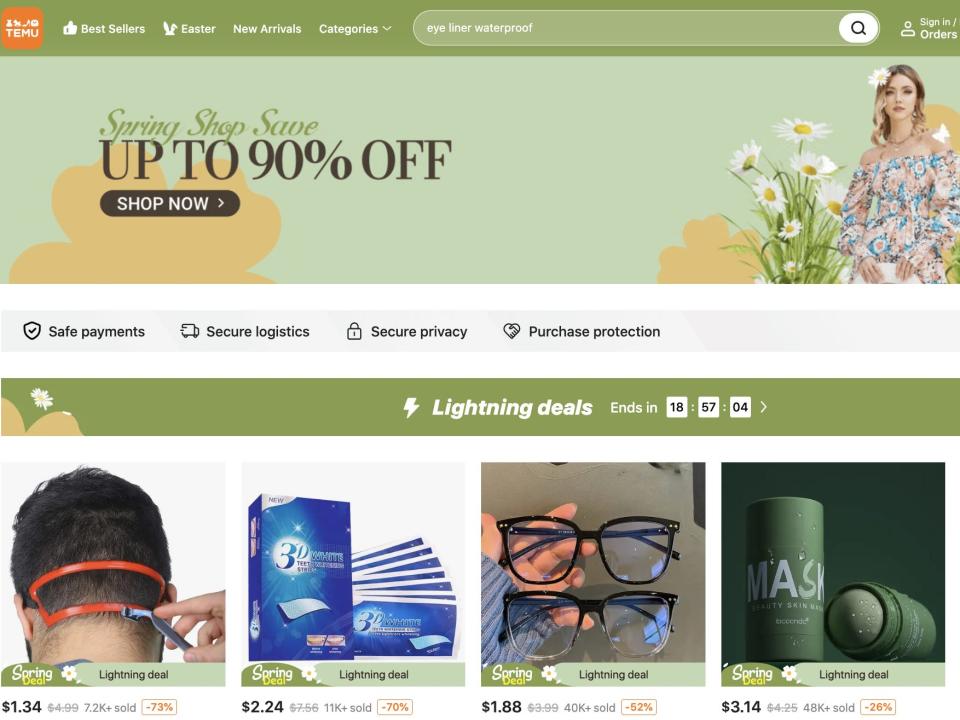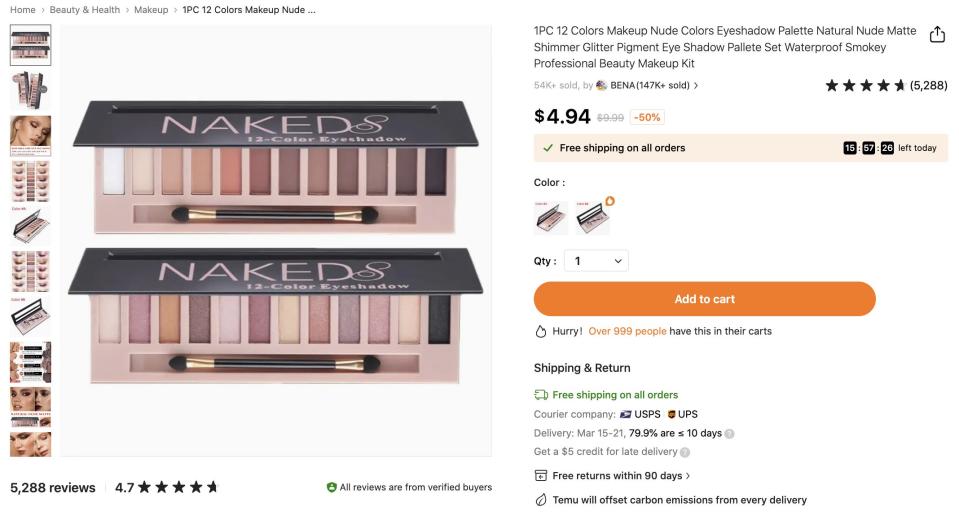This is what you need to know about ultra-cheap Chinese shopping app Temu, which sells a huge variety of weird things — and has some wondering if it's for real

Temu is the top app in the Google Play and Apple App stores, ahead of TikTok, Instagram, and Amazon.
The super cheap marketplace sells apparel, makeup, electronics, homeware, and even bongs.
Prices are so low that some shoppers wonder if it's a scam, but people who tried it says it works.
In just a few months, e-commerce app Temu has stormed its way to the top of the download charts and is gaining attention for its bargain prices, which are so low that some shoppers think the website must be a scam.
A recent experience with an Insider reporter ordering a basket of items showed that Temu is indeed legit, though he questioned the quality of certain items. And industry watchers say the company has a long way to go in terms of user experience – something that's crucial as it looks to take on the likes of Amazon.
Temu (pronounced tee-moo), which is headquartered in Boston but owned by Chinese firm PDD Holdings, launched in the US in September. It's listed as the top free app in both the Google Play store and the Apple App Store, ahead of TikTok, Amazon, and Instagram.
Similar to Amazon, it sells a vast array of items – ranging from fast fashion and makeup to electronics, homeware, and even bongs on both its website and app. It operates exclusively as a marketplace where sellers – who are predominantly based in China – sell goods to customers in the US and Canada.
So what do we know about the company and how does it keep its prices so low?
'Shop like a billionaire'
Temu created a buzz with its Super Bowl ad in February that showed a woman effortlessly purchasing various items on the Temu app on her phone. The tagline, "shop like a billionaire," suggested that shoppers can buy whatever they want without worrying about the cost.
"The idea is you can just keep running your credit card because your budget can afford it," Michael Felice, associate partner in the communications, media, and technology practice of consulting firm Kearney, told Insider.
It's clear from the homepage of Temu's website that the main focus is price. Graphics advertise a range of promotions on the site, and each item has a listed price and a percentage discount next to it. This is often as much as 80% off. A spokesperson for Temu did not confirm how these percentages are calculated.
What brands does Temu sell?
There aren't many recognizable western brands to shop on Temu. No results come up, for example, for Adidas, Apple, or Urban Decay – though when you search for the latter, a listing comes up for an eyeshadow palette similar to its famous Naked palette.

There are other examples of apparent knockoff products: a search for Victoria's Secret's Pink brand pulled up a host of bags showing the "Pink" label, without any reference to the US brand in the listing. Similar styles also feature on Alibaba and Amazon.
There's also a black duffle bag featuring Herschel branding that's listed for $9.79, compared to $110 for a similar bag on Herschel's own website, and a number of unbranded tote bags priced at under $20 that look similar to ones sold by Marc Jacobs for up to $595.
Victoria's Secret, Herschel, and Marc Jacobs did not respond to Insider's request for comment on whether they were aware of these listings and had tried to get them taken down.
Temu says that it has a strict policy against any listings that violate a third party's intellectual property rights and would remove any items that infringe on this. On both the Apple and Google app stores, Temu has a 4.6-star rating.
Cutting out the middleman saves costs
Temu says its "next-gen manufacturing model" – whereby it shares data on what consumers are shopping for and searching for on its site with its third-party sellers – helps to keep prices low. This enables sellers to better predict trends, plan production, and therefore reduce the risk of overproducing items that consumers don't want. These cost savings can then be passed on to the consumer, a spokesperson for Temu told Insider.
But experts say there are other factors contributing to its bargain prices. Most of the sellers are based in China, where manufacturing and labor costs are lower, and the manufacturer-to-consumer business model means that there's no middleman in the chain to take a slice of profits. Temu also provides sellers with free tools like access to its photo studios to ensure content on the site looks aesthetically similar.
"Temu is exposing a white space in the market wherein brands have been producing at extreme low cost – but along the value chain, there's so much incremental cost," Felice said. In other words, most manufacturers sell through so many layers of middlemen — each of whom wants their cut — that by the time an item is offered to a consumer, it's loaded up with add-on costs; with Temu, the middlemen are cut out of the process.
But for the average North American shopper, such low prices can actually be disconcerting, especially when they don't know much about Temu.
"With a site like Amazon, there's a degree of confidence … if something goes wrong, they've got your back," Neil Saunders, managing director of GlobalData Retail, told Insider. "I think with Temu, people don't have that confidence because it's not as well known," he added.

 Yahoo Autos
Yahoo Autos 